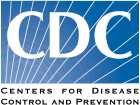 Can Enough Zzzz's Prevent Disease?
Can Enough Zzzz's Prevent Disease?
By Claire C. Caruso PhD, RN - Research Health Scientist, NIOSH

Scientific evidence is growing that adequate sleep is critical in working safely and maintaining optimal health. The National Sleep Foundation states most adults need 7 to 9 hours of sleep each day. Adequate sleep is associated with a lower risk of obesity, diabetes, high blood pressure, and heart attacks, as well as reduced risk for injuries and errors. A recent study warns that a growing number of Americans are not getting enough sleep. This trend for shorter sleep is likely linked to global competition on businesses, cost of living increases pushing workers to work longer hours, as well as personal choice to spend time on other activities besides sleep because of a lack of knowledge about the importance of sleep.
Inadequate sleep has critical negative impacts on the workplace. The risks from fatigued workers are broad reaching and extend from workers to employers and society. Risks to employers include reduced productivity and increases in worker errors and incidents ranging from medical errors to industrial disasters. Fatigue is a recognized risk factor for vehicle crashes and has been implicated in well-known disasters such as the 2009 Buffalo jet crash and the 2005 BP Texas City explosion.
In December 2010, Healthy People 2020, the US national public health goals for the next 10 years, launched a new chapter for Sleep Health. There are four objectives: 1) increase the proportion of persons with symptoms of obstructive sleep apnea who seek medical evaluation; 2) reduce the rate of vehicular crashes due to drowsy driving; 3) increase the proportion of students in grades 9 through 12 who get 8 or more hours sleep each day; and, 4) increase the proportion of adults who get 7 or more hours sleep each day. NIOSH scientists are working on training programs to improve fatigue and sleep-related issues for workplaces. These will be added to the NIOSH topic page for work schedules as they become available ( http://www.cdc.gov/niosh/topics/workschedules/ ). Check out the latest entry on the NIOSH Science Blog related to Sleep and Work http://blogs.cdc.gov/niosh-science-blog/2012/03/sleep-and-work/
For more tips on improving sleep and to learn what scientists are doing to improve societal well-being through sleep research, check out:
- Your Guide to Healthy Sleep - ( http://www.nhlbi.nih.gov/health/public/sleep/healthy_sleep.pdf

 ).
). - The Healthy People 2020 Topic Page for Sleep Health ( http://www.healthypeople.gov/2020/topicsobjectives2020/overview.aspx?topicid=38
 ).
).
